#Presbyterian
Explore tagged Tumblr posts
Text
Roman Catholics and Orthodox have got to knock it off with "Protestants have brutalist corporate churches". A particular modern strain of Protestantism has hideous modern churches. It's a depressingly common strain, and arguably the dominant one in America, but it's either ignorant or dishonest to pretend as though all Protestants have ugly churches.
Behold:
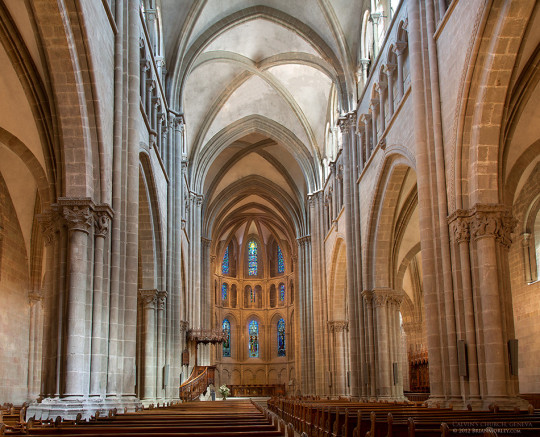
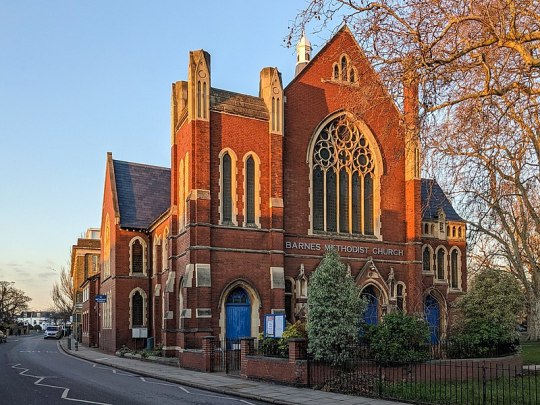
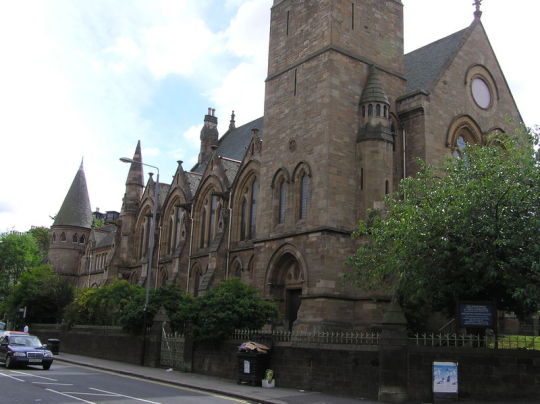
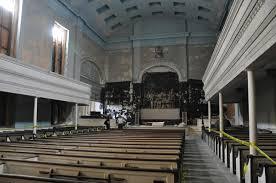
Clockwise from top left:
St. Peter's Church, Geneva, canton of Geneva, Switzerland (Swiss Reformed)
Barnes Methodist Church, London, England, UK (Methodist)
Dutch Reformed Church, Newbury, New York state, USA (Dutch Reformed)
St. Jude's Church, Glasgow, Scotland, UK (Presbyterian)
#i'm not arguing for protestantism#i am arguing for honesty and accuracy in apologetics#christianity#theology#churches#protestantism#swiss reformed#methodism#dutch reformed#presbyterian
163 notes
·
View notes
Text
"Faced with declining membership, aging buildings and large, underutilized properties, many U.S. houses of worship have closed their doors in recent years. Presbyterian minister Eileen Linder has argued that 100,000 churches may close in the next few decades.
But some congregations are using their land in new ways that reflect their faith – a focus of my urban planning research. Some are repurposing their property to provide affordable housing, as the housing crisis intensifies across the country.
Take Arlington Presbyterian Church in Arlington, Virginia. In 2016, the church sold its historic stone building to the Arlington Partnership for Affordable Housing to construct a 6-story complex with 173 apartments, known as “Gilliam Place.” The building still houses space for the congregation, as well as La Cocina, a bilingual culinary job training facility and cafe. In Austin, Texas, St. Austin Catholic Parish is partnering with a developer to build a 29-story tower providing 200 beds of affordable student housing, in addition to new spaces for ministry.
Other houses of worship are pursuing similar projects today.
Same mission, new projects
Faith-based organizations have been building housing for many years, but generally by purchasing additional property. In recent years, however, more houses of worship are building affordable housing on the same property as the sanctuary.
This can be done in a variety of ways. Some congregations adapt the existing sanctuary and other faith-owned buildings, while others demolish existing buildings to construct a new development, which may or may not have space for the congregation. Another option is to build on excess property, like a parking lot.
Depending on how a development deal is structured, a faith-based organization may receive proceeds from the sale of its land, or from leasing their property to a developer – funds which they can then spend on ministry or on a new space for worship. If a new development includes space for the congregation, sometimes they rent out those spaces when the space is not being used for worship, which can also financially benefit the congregation.
Faith-based organizations often see these projects as a way to do “God’s work.” In some instances, they include community services beyond the housing itself.
Near Los Angeles, the Episcopal Church of the Blessed Sacrament in Placentia partnered with a nonprofit affordable housing developer – National Community Renaissance, also called National CORE – to develop 65 units for older people. The complex also includes a 1,500 square foot (140 square meter) community center. The city’s diocese has a goal of building affordable housing on 25% of its 133 properties.
For some congregations, these are mission-driven projects rooted in social justice.
In Washington, D.C., Emory United Methodist Church redeveloped its property and constructed The Beacon Center – which has 99 affordable housing units, community spaces, and a commercial kitchen that provides job training for recently incarcerated people – while preserving the sanctuary. In Seattle, the Nehemiah Initiative is working with Black churches in the Central District, a historically African American neighborhood, to redevelop its properties into affordable housing to keep residents from being displaced."
Potential to evolve
As states and cities struggle to provide affordable housing, studies have been conducted from Nashville to New York City on the amount of land faith organizations own, and their potential as housing partners.
In the D.C. metro area, for example, the Urban Institute found almost 800 vacant parcels owned by religious organizations. In California, a report from the Terner Center at University of California, Berkeley found approximately 170,000 “potentially developable” acres of land owned by religious organizations and nonprofit colleges and universities...
When thinking about the redevelopment process, Arlington Presbyterian member Jon Etherton told me, “the call from God to create, do something about affordable housing was bigger than the building itself.”"
-via The Conversation, July 19, 2024
#church#christianity#washington state#california#washington dc#presbyterian#affordable housing#housing crisis#good news#hope
190 notes
·
View notes
Text

“When we are out of the way of our duty we are in the way of temptation…Idleness gives great advantage to the tempter. Standing waters gather filth.”
— Matthew Henry; Commentary on 2 Samuel 11
69 notes
·
View notes
Text

Something I am working on after the live blogs. I came across a very easy to find, but under shared bit of information regarding Medrano that has really recontextualized the show for me. It still isn't a good show, but I missed a crucial component when I said the series had nothing to say. It still doesn't have much to say, but once you realize that Vivienne Medrano was raised Presbyterian, and seems to still adhere to most of those teachings, a lot of decisions make sense. The particular denomination of Christianity is one based on Trinity doctrine, and also strongly adheres to the idea that depicting god is a biblical transgression. So that explains why God and Jesus are not characters within the series and will never be.
Additionally, the Presbyterian Church is one of the few sects that has a relatively strong belief in the Calvinist ideology of Predestination. Specifically that one is born chosen by God or not, which explains pretty much everything in Hazbin. Angels are "winners" because they were born chosen while a random select of unchosen people are damned to hell. Some versions of the Presbyterian Church still hold to the belief that one's lifestyle, be you a good or evil person, is irrelevant. If you are chosen, nothing you do will remove that.
And that is why these characters being in hell doesn't matter. They didn't do anything to get there. They still adhere to Christian beliefs of what sort of people are not chosen (drug addicts, sex workers, mean people), but there is an inherent lack of nuance because the doctrine renders it unnecessary. Adam and Lute are awful and allowed to be in heaven because heaven is forever. Chosen are forever chosen regardless of Sin. It also explains why the LGBT aspect of the show is irrelevant to the plot.
This background knowledge is paramount to understanding Hazbin and Helluva (Hell is like the living world because a mixed bag of people are in Hell in the first place. Hellborn characters are not that different from humans and still exist in a realm of morality because morality isn't the reason they are in Hell).
My issue with trying to get into Hazbin's themes was because I didn't understand this was the origin of the plot. A lot of critiques and proposed rewrites miss the point entirely because Predestination in this sense is not a common belief. The world building requires a relatively intimate understanding of Presbyterian teachings in order to grasp the basic foundation of the story.
#vivziepop critical#vivienne medrano#spindlehorse critical#vivziepop criticism#hazbin hotel#hazbin hotel critique#tw religious themes#presbyterian#predestination
69 notes
·
View notes
Text
Writers with a more historic Protestant perspective have generally translated the Greek word charis as "grace" and understood it to refer to the idea that there is a lack of human effort in salvation because God is the controlling factor. Proponents of the New Perspective argue that "favor" is a better translation, as the word refers normally to "doing a favor". In ancient societies there was the expectation that such favors be repaid, and this semi-formal system of favors acted like loans. Gift giving corresponded with the expectation of reciprocity. Therefore, it is argued that when Paul speaks of how God did us a "favor" by sending Jesus, he is saying that God took the initiative, but is not implying a lack of human effort in salvation, and is in fact implying that Christians have an obligation to repay the favor God has done for them. [...] "charis" as "favor" [does] not teach that Christians earn their way to heaven outside of the death of Christ. Forgiveness of sins through the blood of Christ is still necessary to salvation. But, that forgiveness demands effort on the part of the individual (cf. Paul in Phil. 3:12–16).
#christianity#bible#jesus#something to meditate on#faith in jesus#bible scripture#keep the faith#faith#jesus christ#christian#catholicism#protestantism#catholic#catholic church#reformed#presbyterian#lutheran#messiah#martin luther
23 notes
·
View notes
Text
Ok folks raised or in the church, reblog this with your most insane church lore, drama, or scandal.
I'll go first. My church started out as a New England commune. They all shared one lawnmower.
#church#christian#presbyterian#methodist#baptist#Catholic#Orthodox#Protestant#anglican#episcopal#ex christian#church stories#christianity#christian stories#m#jesus#yes i was inspired by the responses to my hyper specific poll#yes i was more immediately inspired by my sister
95 notes
·
View notes
Text

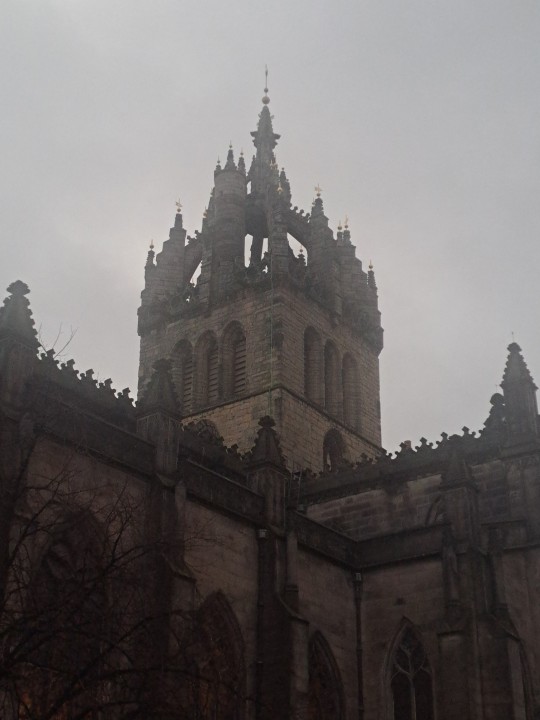
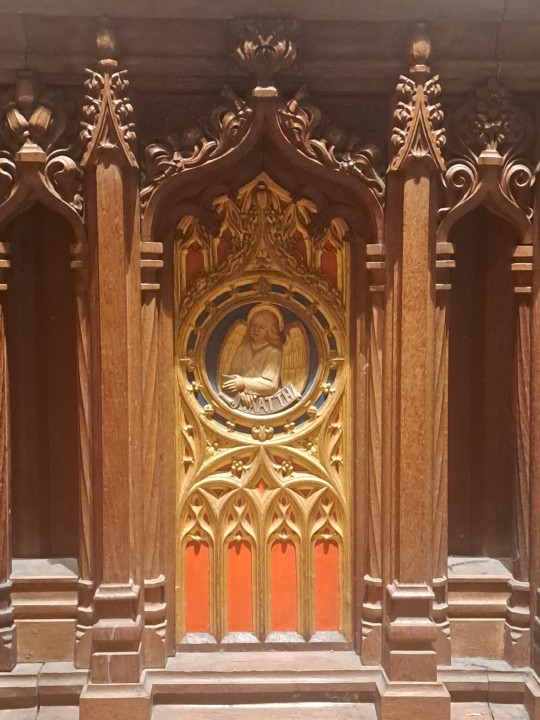

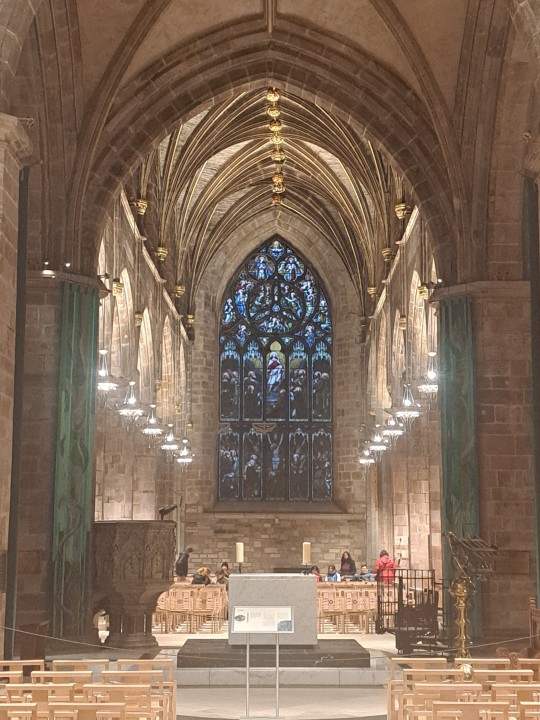
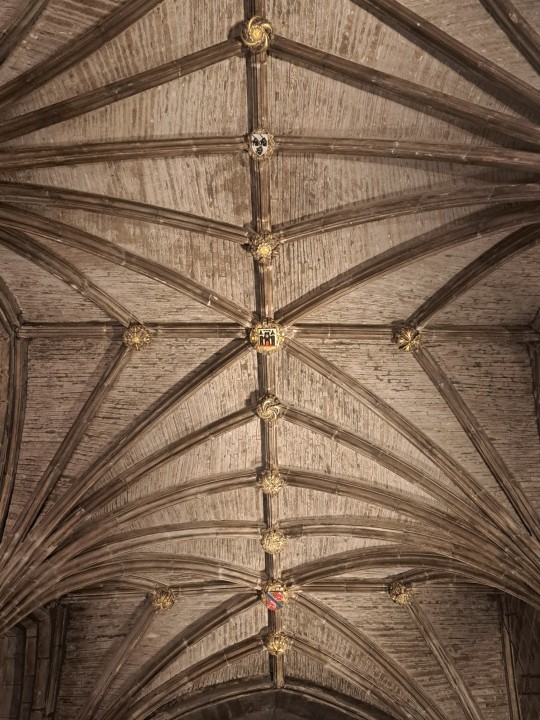
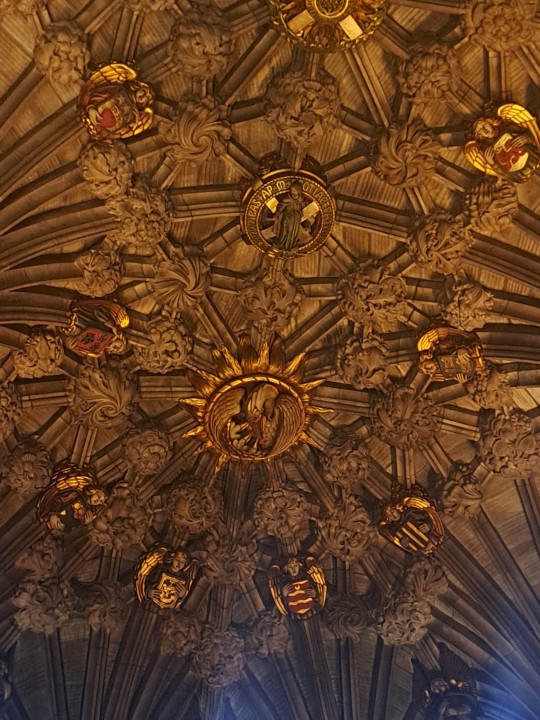
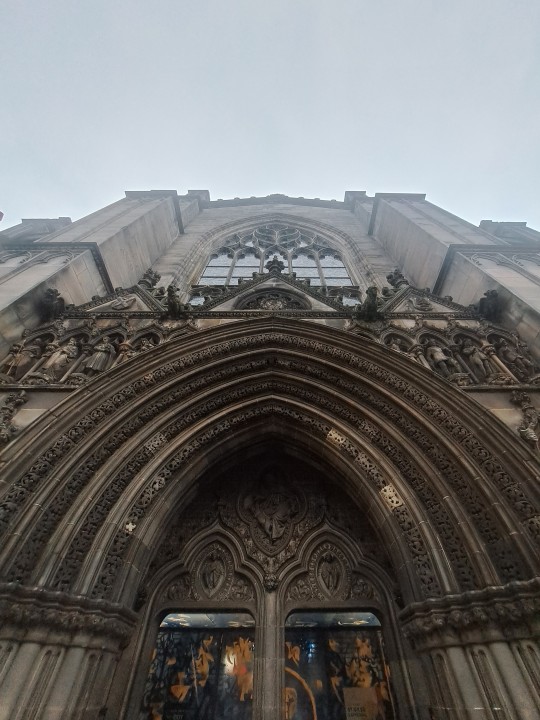

S. Giles' High Kirk, Edinburgh
#dark academia#moodboard#scotland#scottish#edinburgh#duke of edinburgh#presbyterian#Christian#dark acadamia aesthetic#darkest academia#light academia#dark academia moodboard#academia aesthetic#academia#historic architecture#history#scottish history#architecture#churches#cathedrals#gothic architecture#church architecture#chaotic academic aesthetic#student#university#college#studying#edinburgh student#heraldry#gloomy
121 notes
·
View notes
Text
If Catholics have Catholic guilt, what do Protestant denominations have? More pressingly, what do Orthodox denominations have?
#Christianity#Orthodox#Catholic#Protestant#Baptist#Methodist#Lutheran#presbyterian#Religion#catholic guilt
11 notes
·
View notes
Text

16 notes
·
View notes
Text
Lord, I Believe! Help My Unbelief!
In Mark 9:14-29, the weakness and limit of men is demonstrated, especially with regard to faith, and so is the answer to men's weakness:
Luke 17:5 (KJV), "And the apostles said unto the Lord, Increase our faith."
Mark 9:24, "And straightway the father of the child cried out, and said with tears, Lord, I believe; help thou mine unbelief."
“A weak faith may also be true faith, when it is otherwise of the right kind. A fire is not at once a bright blazing flame, but it often starts with a single spark.” - Otto Thelemann, An Aid to the Heidelberg Catechism, 79
Hebrews 12:2a, "Looking unto Jesus the author and finisher of our faith."
Notice what the Epistle to the Hebrews tells us, that Christ doesn't just finish or complete it but is the one who gives us the faith to begin with. This is why the Westminster Shorter Catechism puts it this way:
Question 86: What is faith in Jesus Christ?
Answer: Faith in Jesus Christ is a saving grace, whereby we receive and rest upon him alone for salvation, as he is offered to us in the gospel.
It is a saving grace, meaning it wholly begins with the gracious act of God, and doesn't begin with man or his acceptance. It is strengthened by Christ who works it in us by His Spirit completing that work at our death.
Praise God, our salvation relies not upon any faith made by the strength of men, but on a faithful Savior who is powerful, mighty, and gracious to save sinners.

18 notes
·
View notes
Text

Presbyterian Church in Hāwera, New Zealand
British vintage postcard
#postal#presbyterian church#historic#ansichtskarte#presbyterian#sepia#vintage#tarjeta#zealand#new zealand#briefkaart#photo#hwera#british#church#hāwera#postkaart#ephemera#postcard#postkarte#photography#carte postale
3 notes
·
View notes
Text







Explored a Presbyterian church
3 notes
·
View notes
Text

39 notes
·
View notes
Note
re: Predestination, that is a very interesting angle, but from what I've seen and read it's never told within the story or worldbuilding right? is it a case of a creator thinking their religious upbringing is somewhat universal and therefor never explored in depth within the shows?
The idea of predestination is never explicit in the show, but very passively referenced as if it were a fact of reality. And that either comes from an insular view of religion and thinking her beliefs are, if not universal, at least common enough to be easily identified. Or, what I believe is more likely, it's selfish content of a selfish creator.
Predestination is a debatable topic in Christianity about how common a belief it is. From some search results claiming it is one of the most prevalent cornerstones of Christian belief to being one of the rarest. At the very least, Calvinist doctrine is extremely rare in the modern landscape, almost exclusive to Presbyterianism. Though I should also specify that Presbyterian doctrine is not a united belief. Many who identify under this religion can have widely varied beliefs, but the story of Hazbin Hotel places Medrano's understandings quite heavily in predestination.
One of my biggest critiques on Hazbin's themes was that the idea of "Christian Hypocrisy" was just not there. The whole episode of Welcome to Heaven didn't determine anything aside from "we don't have proof of it being possible". Not that Sera or anyone actually had control over that fact and were somehow keeping sinners out. There isn't even true hypocrisy in Adam and Lute being angels, because while they aren't holy people, the selection of salvation is not up to anyone. The whole point to predestination in Presbyterianism is that it is more fair that way. People are chosen to heaven before they even begin their lives and everything they do in life, God was aware they would do them when he chose them regardless. No one, then, is being hypocritical, and Medrano seems to know this in how she calls human angels "Winners" like of a lottery. And lotteries are considered the most unbiased means of selecting people for anything. It isn't based on you being a good person, or a bad one. The system itself is merely uncaring, and in that apathy levies justice and salvation in equal measure.
And because she never explicitly acknowledged her beliefs of predestination, Sir Pentious becoming an angel at the end is the closest to criticism of religion that we get. Basically, "I think people who aren't chosen should have the opportunity to work for it." Which is ironically less fair when analyzed objectively. Some people get in no matter what, while others have to essentially slave away to receive the same thing.
Most religions have an emphasis on redemption through life. Calvinism itself was designed with the goal in mind that people didn't focus their lives on their deaths, but on the actual gift of living. If you're chosen you have faith, it's the chicken and the egg scenario. Most religions put faith as the act that saves, whereas Presbyterianism says that having faith is the sign that you are saved.
In the one way she adds a layer of depth to her series, Medrano simply reinvents the Catholic doctrine of Purgatory.
#vivziepop critical#vivienne medrano#vivziepop#vivziepop criticism#hazbin hotel#hazbin critique#hazbin critical#presbyterian#predestination#purgatory#anon ask
52 notes
·
View notes
Text
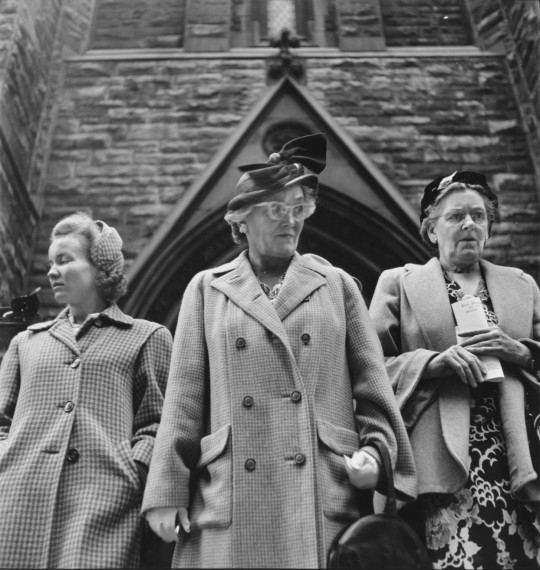
Outside Presbyterian Church on Sixth Avenue. Pittsburgh, Pennsylvania. September, 1950
Photo: Elliott Erwitt
15 notes
·
View notes
Text

7 notes
·
View notes